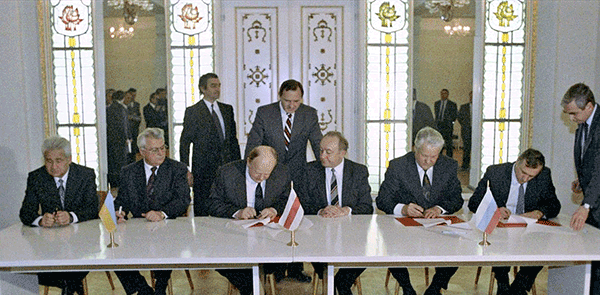|
Monday, Dec. 6 // 4–5:30 p.m. (ET)
Horan’s presentation, based on her book Insurance Era, will offer an introduction to the history of the insurance industry in the United States during the second half of the twentieth century. The presentation will underscore the social, cultural, and economic influence exerted by private insurers in the U.S., as well as the lasting impacts of the industry’s efforts to privatize security and diminish demand for public provision and collective risk sharing.

Tuesday, Dec. 7 // 11:00 a.m.–12:00 p.m. (ET)
Join the Wilson Center's Gender-Based Violence Project and our co-sponsors, the George W. Bush Center and Women in International Security (WIIS) to discuss the findings of a new publication and address why gender-based violence matters, provide a path forward on the challenges faced to advance gender-based violence-related legislation and protection mechanism for women and girls.

Tuesday, Dec. 7 // 12–1:30 p.m. (ET)
Since October 2020, the National Security and Defense Council of Ukraine (NSDC) has played an outsized role in Ukrainian politics. The council reports to the president and has spearheaded several contentious reforms, including the recent introduction of the de-oligarchization policy. The council also participated in the controversial decision to remove the head of the Constitutional Court as well as to impose sanctions on the media holdings of certain oligarchs. What impact does the NSDC have on the political system, security, and quality of democracy in Ukraine?

Wednesday, Dec. 8 // 10–11:00 a.m. (ET)
Join Women in International Security and the Wilson Center’s Global Europe Program for a conversation about the factors that influence gender representation and ways to increase women’s access to civilian and military missions in the EU.

Wednesday, Dec. 8 // 1–2:00 p.m. (ET)
What, if anything, can the international community do to help Haiti overcome its persistent challenges? Why have previous efforts, including a multi-year UN Mission known as MINUSTAH, failed to stabilize the country? What are the consequences for Haiti’s neighbors and the region more broadly of Haiti’s ongoing instability? Join us to discuss these critical issues.

Wednesday, Dec. 8 // 2–4:00 p.m. (ET)
Join the Wilson Center’s Polar Institute, along with ANCSA Regional Association and Alaska Native Village Corporation Association, to hear from Alaska Native women leaders how they guided Alaska Native corporations through their early years and how the organizations evolved to serve the needs of their Alaska Native communities.

Thursday, Dec. 9 // 10–11:00 a.m. (ET)
Join us for a conversation to commemorate the launch of six new policy briefs produced as part of the Transatlantic Blue Economy Initiative. Several of the paper authors will join us for a discussion of the main findings of their policy briefs on innovative ways to best approach the blue economy for sustainable growth.

Thursday, Dec. 9 // 12–2:00 p.m. (ET)
A million workers are employed on Mexican farms that export fruits and vegetables to the U.S., and another two million Mexican-born workers are employed in U.S. agriculture. This seminar presents the results of worker surveys in Mexican export agriculture and in U.S. agriculture. Results will be presented with simultaneous translation in English and Spanish.

Friday, Dec. 10 // 10–11:00 a.m. (ET)
Finland's Policy for Arctic Strategy, released in June 2021, sets out Finland's key objectives in the Arctic region at a time when international interest towards the Arctic has increased significantly. At the core of the strategy are sustainable development, climate change mitigation and adaptations as well as respect for the rights of Arctic indigenous peoples. Join the Wilson Center's Polar Institute for an armchair discussion on the new Arctic Strategy with Finnish Permanent State Secretary Matti Anttonen.

Friday, Dec. 10 // 12–1:00 p.m. (ET)
This discussion will feature the new book, Weak Strongman: The Limits of Power in Putin’s Russia (Princeton University Press, 2021) by Marshall D. Shulman Professor of Post-Soviet Foreign Policy at Columbia University, Timothy Frye. This conversation will explore Putin’s weaknesses, and it will place them against the strengths he has and the strengths he is perceived as having.

|





